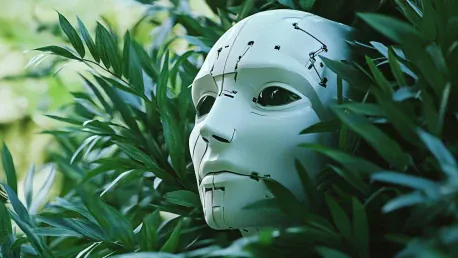Imagine a workplace where employees no longer feel overwhelmed by the sheer volume of emails, meetings, and menial tasks that consume their day. A world where creativity flourishes and expertise is easily accessible to everyone, thanks to advanced artificial intelligence (AI). This is the compelling vision Matthew Duncan, Head of Thought Leadership on the Future of Work at Microsoft, brings to light.
The Alluring Promise of AI in the Workplace
According to recent studies, the incorporation of AI in the workplace has shown promising strides toward boosting productivity. Statistics reveal that AI can potentially increase efficiency by up to 40%. This transformative capability of AI stretches far beyond what traditional tools offer, promising not just incremental advancements but a complete overhaul of work dynamics.
The Crucial Shift in Perception
Duncan passionately argues that AI should not be relegated to the status of a mere tool. Instead, he advocates for recognizing AI as a comprehensive force capable of transforming the very fabric of workplace operations. This shift in perception is pivotal for leaders navigating the AI landscape, enabling them to unlock the full potential AI holds.
AI: Enhancing Employee Experience and Reducing Stress
Research highlights a stark reality where employees spend approximately 60% of their time managing emails, chats, and meetings. This digital debt leads to inefficiencies and stress. AI stands as a beacon of hope, potentially liberating up to 40 hours per month for employees to engage in more creative and impactful tasks. Duncan underscores that this is not just about streamlining operations but fostering new synergies between humans and AI.
Democratizing Expertise and Amplifying Creativity
The democratization of expertise is one of AI’s most revolutionary benefits, enabling individuals to learn and execute tasks without extensive prior skills. Duncan illustrates coding as a prime example where AI allows employees to perform complex functions with ease. AI serves as a thought partner and idea generator, enhancing creativity and ushering in new perspectives that drive innovation across the board.
Practical Applications of AI in Workplace Processes
Duncan provides concrete examples of AI’s practical applications. In meeting management, AI can translate languages, synthesize information, and highlight key takeaways, reducing unnecessary time spent. In communication management, AI can prioritize tasks and help employees focus on essential information, alleviating the burden of overflowing inboxes.
Expert Insights and Thought Leadership
Matthew Duncan offers profound insights backed by research and real-world examples. He recalls instances where AI has significantly streamlined operations, improving not just productivity but employee satisfaction. Duncan’s firsthand experiences underscore his belief in AI’s transformative potential and serve as a testament to its effectiveness.
Strategic Integration of AI for HR Leaders
For HR leaders looking to integrate AI, Duncan recommends starting with specific workflows such as recruiting or talent management. By optimizing one process at a time, organizations can gradually expand AI’s use, fostering broader acceptance and understanding of its capabilities. Strategic implementation ensures tangible benefits and smooth transitions.
Conclusion
Duncan concluded by urging HR leaders and employees to embrace AI as a conversation partner capable of analyzing, planning, and executing tasks more efficiently. Future steps should include exploring new methods of integrating AI into daily operations, continually refining processes for maximum effectiveness. Duncan’s vision calls for a collaborative and forward-thinking approach to workplace innovation.









